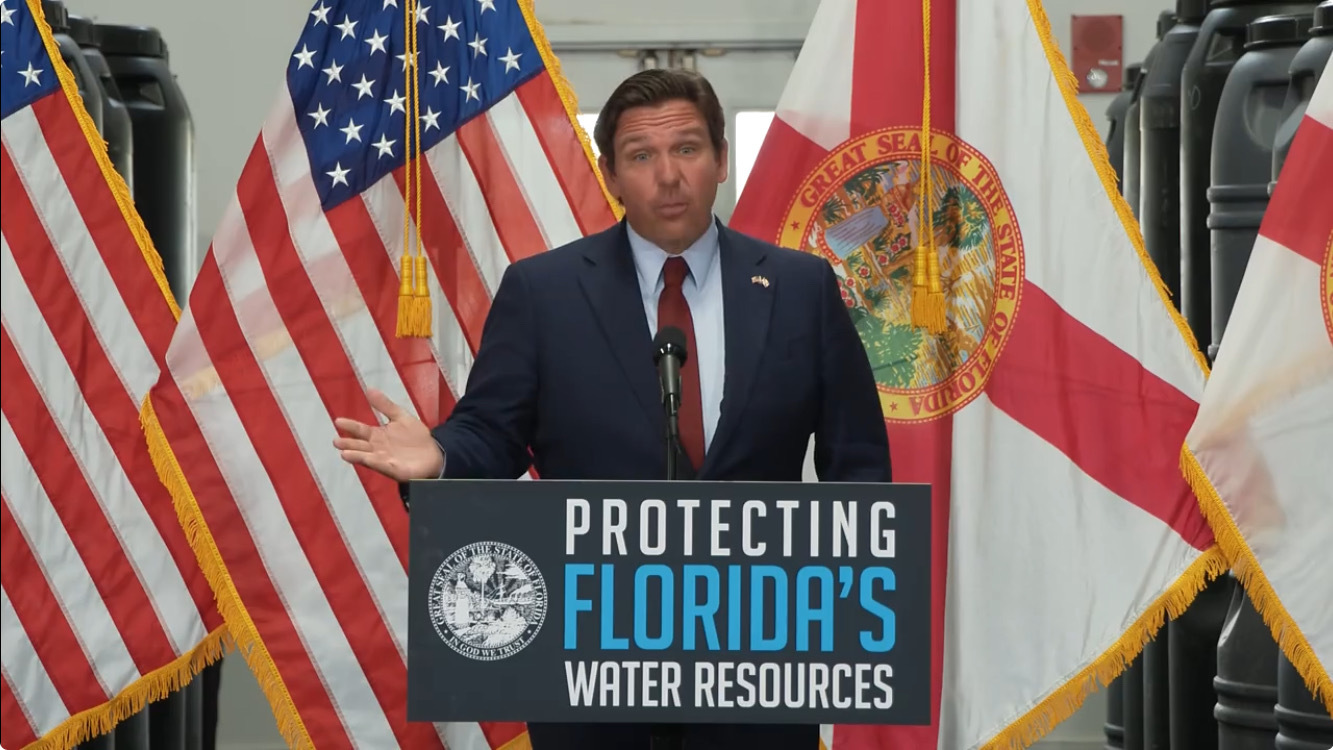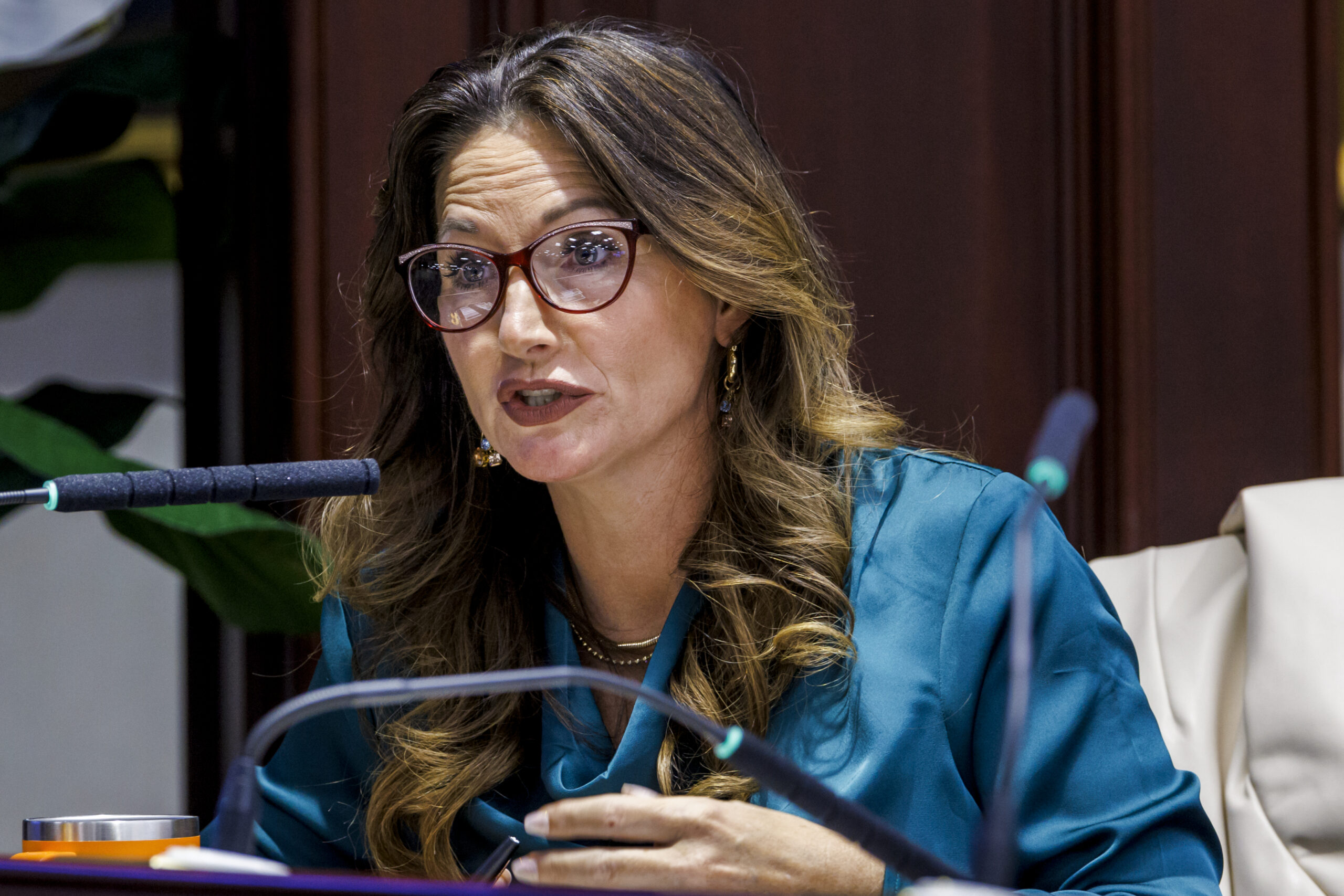Legislation to ask voters next year whether they want to amend the Florida Constitution and set eight-year term limits for all County Commissioners and School Board members survived its second House stop, but not without taking some dings.
By the time members of the House Education Administration Subcommittee voted on the measure (HJR 679), more than three dozen people had spoken against it or signaled opposition, including several members of the panel.
The bill’s sponsor, Escambia County Republican Rep. Michelle Salzman, was visibly frustrated and said as much during her closing statements. Last year, she said, she sponsored a similar proposal that would have made the change through legislative approval, but people urged her to instead put the issue on the ballot.
“I brought it back and I’m putting it on the ballot, and now that’s not enough,” she said. “Now that’s not the right way.”
Lawmakers established 12-year term limits for School Board members in 2022. But by the following year, Spring Hills Republican Sen. Blaise Ingoglia — who is now carrying a Senate twin (SJR 802) to Salzman’s bill — began pushing for a more restrictive eight-year limit that also applied to County Commissioners.
Gov. Ron DeSantis supported the change, though it’s proven unsuccessful so far.
Salzman said an overwhelming share of voters want term limits at all levels of government and that without them, incumbents often amass power that can prove prohibitive to smart, well-intentioned people hoping to unseat them.
“Public service is not a career. We’re not supposed to be here serving the people for 20 years. We’re supposed to come here fresh and ready to serve, energized and ready to work for the people,” she said. “And it’s certainly not easy for people with fresh minds and ideas to have an opportunity to serve their community as a public servant if you have the inability to get somebody to move out of office.”
Salzman added that she plans to file an amendment to allow for County Commission and School Board members to serve again after they’ve left office for a while and “taken a break.”
Democratic Reps. Jose Alvarez of Kissimmee, LaVon Bracy Davis of Ocoee, Angie Nixon of Jacksonville and Marie Woodson of Hollywood complained about state overreach, arguing a one-size-fits-all approach to local governance could cause problems.
Nixon noted that at a time when there’s a push among Republicans at the federal level to send authority back to states, “it almost seems disingenuous with this now to impose the state’s choices on a local area.”
Islamorada Republican Rep. Jim Mooney expressed similar concerns, noting that what is appropriate for Holmes County may not benefit Duval County “and vice versa.” But he said he’d vote for the bill Wednesday with the expectation that it will be improved as it advances.
Miami Beach Republican Rep. Fabián Basabe defended the proposal. He said he used to think elections worked as de facto term limits, since voters had the opportunity to oust officials they disapproved of, but being a state lawmaker changed his perspective.
“We represent a voice in what controls such a massive economy, and locally those (County) Commissions and School Boards … are arguably equally as powerful of an economy,” he said. “I worry about the concentration of power not ever leaving room for new voices and accountability. And on top of that, I’m really interested in hearing from the voters on this.”
One person from the public signaled support for HJR 679. Thirty-seven opposed it, including numerous locally elected officials and representatives from the Florida Association of Counties and the Small County Coalition.
Rich Templin of the Florida AFL-CIO said the idea of blanket term limits for all state officials “has been floating around for about a decade” in Florida, but it’s failed repeatedly because imposing them would “change the fundamental structure of local community government without asking the local community.”
“The problem that we have here is that you are asking all of the voters in the entire state of Florida to make decisions that are going to impact individual communities that are far different than where those voters reside,” he said.
“There are currently four counties in the state right now who could vote, and if they all come out and vote, they could put this in the constitution. … But what about the smaller counties? What about the rural counties? I think you’ll hear from them later.”
That proved true. Ralph Thomas, a Commissioner in Wakulla, Florida’s smallest and newest county, said the right to home rule — local self-governance — was enshrined in the Florida Constitution in 1968 to allow local governments to impose term limits as they saw fit, among other things.
Today, 47 of Florida’s 67 counties have not adopted home rule charters and 20 have. Of those, 11 have term limits and nine don’t.
“There’s great diversity across our state with this opinion,” he said. “(HJR 679) gives the people nothing they don’t already possess. This just strips away the ability to choose who’s on the ballot.”
HJR 679, which advanced on an 11-6 vote Wednesday, will next go to the House State Affairs Committee before reaching a floor vote.
SB 802 advanced through its first of three stops on a 6-2 vote last month.
___
A.G. Gancarski of Florida Politics contributed to this report.
Post Views: 0

 Entertainment8 years ago
Entertainment8 years ago
 Politics8 years ago
Politics8 years ago
 Entertainment8 years ago
Entertainment8 years ago
 Entertainment8 years ago
Entertainment8 years ago
 Tech8 years ago
Tech8 years ago
 Tech8 years ago
Tech8 years ago
 Tech8 years ago
Tech8 years ago
 Politics8 years ago
Politics8 years ago










